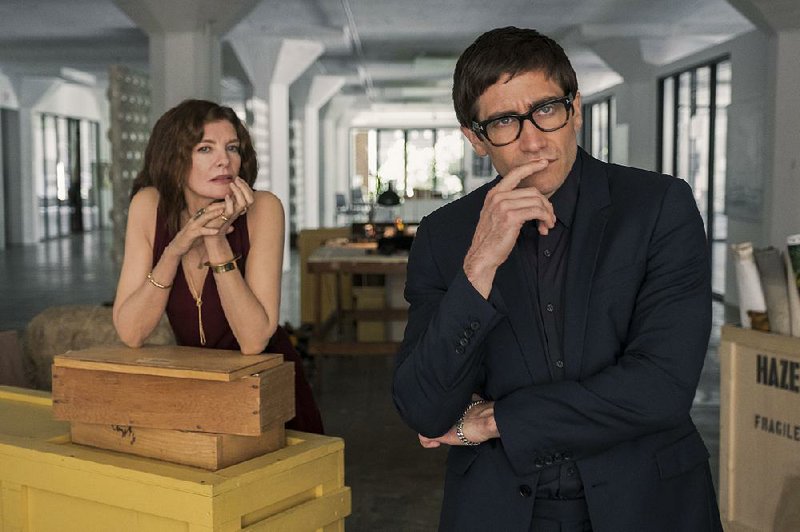It's not just the size of the screen that determines whether a movie benefits from being seen in a theater as opposed to at home. While Netflix's Roma ideally ought to be seen in the most immersive atmosphere possible, a good home video setup will suffice.
On the other hand, Peter Jackson's World War I documentary They Shall Not Grow Old greatly benefits from being seen in a theater, not necessarily because it technically demands it, but because it's one of those movies that needs to be seen in a communal setting. It reminds us of humanity's common vulnerabilities, and its horror and odd uplift is best received in a crowd. It will make you feel a little protective and a little proud of our poor kind.
(That's not to say the movie's technical achievements aren't impressive. But while people disagree, I still say you probably don't need the 3-D version.)
But there are a lot of movies that are really TV-sized.
I don't mean that as a dig; TV is better now than it has ever been. I can't keep up with all the series I want to follow, everything from HBO's True Detective and Amazon's Patriot to the final episodes of Netflix's Unbreakable Kimmy Schmidt. And I'm glad that Amazon and Netflix have started competing with traditional theatrical distributors, even if it means that some films that otherwise might have made it to a theater near you end up streaming. (I wouldn't be surprised if before too long Netflix and/or Amazon move to acquire a share of a movie chain.)
In any case, there's a certain class of movie -- that I happen to enjoy -- that's very well served by the streaming model. It's the medium-budget film with a bit of risk attached, the sort we used to see a lot of in the '70s, before Jaws and Star Wars convinced the studios it was better business to shoot for four-quadrant blockbusters. (I can acknowledge the economic efficiency of this system while decrying it's aesthetic effects. I don't like the Earl Weaver "wait for the three-run home run" approach to baseball either, but it works better than slapping the ball around like Wee Willie Keeler.)
Netflix, Amazon, Hulu and the like have created a great demand for content. Which ought to be a boon for creators. And for consumers who enjoy more specific sorts of storytelling than the blockbuster model supports.
Velvet Buzzsaw is certainly not the sort of specific storytelling the blockbuster model supports. As to whether it's a good movie or not is an open question, one which I'd be compelled to at least try to answer were I writing a standard review of the film. But we still haven't quite worked out how we want to deal with these sorts of products, so maybe it's OK if I just say I enjoyed watching the film, even though I'd have been fairly disappointed had I paid the going movie ticket rate to see it. It was an interesting experience to have on a school night with a glass or two of wine and in the company of someone with whom I share a lot of private jokes.
This is a movie that -- at its best -- feels like a private joke. It stars Jake Gyllenhaal as a pretentious (but strangely honest) art critic named Morf Vandwlet (an Evelyn Waugh-ish name designed to cue us in on the tone) and Rene Russo as superstar gallery owner Rhodora Haze, who back in the day was in a punk band called Velvet Buzzsaw. The film was written and directed by veteran screenwriter Dan Gilroy, who had a hand in writing five frenetic Bourne movies and co-wrote Kong: Skull Island. Gilroy made his directorial debut in 2014, with the excellent broadcast news takedown Nightcrawler, which also stars Gyllenhaal and Russo (who's Gilroy's wife).
So you might imagine there was a conspiratorial spirit informing this project, which essentially is a sendup of the contemporary art scene (an easy target more economically vivisected in Tom Ford's 2016 film Nocturnal Animals, which also stars Gyllenhaal). A lot of the jokes are fairly obvious, but there is a certain slyness to Gyllenhaal's performance, and Russo is one of those actors who compels your attention.
Anyway, married to the hit-and-miss art scene stuff -- John Malkovich is terrific as a conceptualist who has lost his will to create -- is a rather broad and cheesy horror element. An outsider artists dies, leaving instructions for his (pretty striking) paintings to be buried. But the neighbor who discovers his body, Josephina (Zawe Ashton), happens to be Rhodora's ambitious protege, and not above appropriating the work for her own purposes.
To this end she enlists Morf and leverages Rhodora.
What's interesting about Velvet Buzzsaw is that while it's not above the usual "what is art?" gags (wherein sacks of garbage and mutilated corpses are mistaken for installations) it does lend its characters a certain integrity. The dead artist's paintings are good -- if they weren't, Josephina wouldn't try to exploit them and Morf wouldn't become the artist's posthumous champion.
Not that their integrity saves them in the end.
Some critics have taken Velvet Buzzsaw as a diatribe against critics, and one could take it that way were one given to take offense. (But Morf's not a fraud and not a hack, he's just a supercilious guy with a bad haircut.) I prefer to see it as an odd little movie that a few years ago would have gone straight to video, and might or might not have acquired a cult following. It's not entirely bad, I'm glad I had a chance to see it in a low-pressure setting.
And that I didn't have to judge it.
Email:
pmartin@arkansasonline.com
www.blooddirtangels.com
MovieStyle on 02/15/2019
